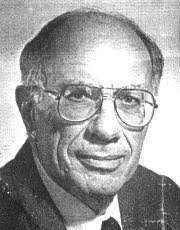Moore, Barrington Jr.

Bio: (1913-2005) American sociologist. Barrington Moore received his doctorate from Yale and taught at Harvard. Moore is one of the most influential historical sociologists, and his theoretical and research orientation was influenced by Marx and his theory of the role of class struggle in history, as well as by Marx Weber and his study of the role of bureaucracy and rational action. The influences of both these intellectual currents are visible in Moore's books Soviet Politics (1950) and Terror and Progress USSR (1954), in which he explores how Stalin's quest for rapid industrialization of the USSR undermined some key aspects of Marxist ideology, especially political equality. Moore believed that the introduction of bureaucratic rules could lead to democratization in that country.
After that, Moore conducted a major socio-historical study, which is presented in the book Social Origins of Democracy and Dictatorship (1966). He explored how historical and social conditions, and above all, the dominant type of economy and class system and class relations, in six countries (Great Britain, France, Germany, Japan, China, and India) influenced the path to democracy or dictatorship, which each of these countries took in the twentieth century. Although Moore accepted some Marxist categories and the general view of deterministic relations between economics and society, he did not accept Marx's universal patterns of historical periods.
Moore believed that achieving democracy in a country mostly depends on the readiness of the bourgeoisie and landowners to accept the commercialization of agriculture. The commercialization of agriculture leads to the formation of an alliance between the bourgeoisie and the landowners, which leads to the collapse of the traditional peasant-agricultural community. If there is no collapse of peasant communities, then there are peasant-agricultural revolutions, such as those in Russia and China. As peasants tend to support undemocratic ideologues, such leaders come to power after revolutions and establish dictatorships. Japan, where the commercialization of agriculture was not carried out, managed to avoid the peasant revolution by including peasant communities in the wider economic and social order. In his later books, Moore dealt with the question of the possibility of building a more tolerant and egalitarian society in the modern world.
Fields of research
Agriculture Authority Bureaucracy Capitalist Class Classes Community Democracy Dictatorship Economy Egalitarianism Empire History Ideology Industry Inequality, Social Leaders Morality Politics Privacy Rationality Revolutions Rural Socialism State Tolerance Tradition Work FascismTheoretical approaches
Conflict TheoryMain works
Soviet Politics: The Dilemmas of Power (1950);
Terror and Progress USSR: Some Sources of Change and Stability in the Soviet Dictatorship (1954);
A Critique of Pure Tolerance (1965);
Social Origins of Democracy and Dictatorship: Lord and Peasant in the Making of the Modern World (1966);
Reflections on the Causes of Human Misery and Upon Certain Proposals to Eliminate Them (1972);
Injustice: The Social Bases of Obedience and Revolt (1978);
Privacy: Studies in Social and Cultural History (1984);
Authority and Inequality under Capitalism and Socialism (1987);
Moral Aspects of Economic Growth, and Other Essays (1995);
Moral Purity and Persecution in History (2000).

